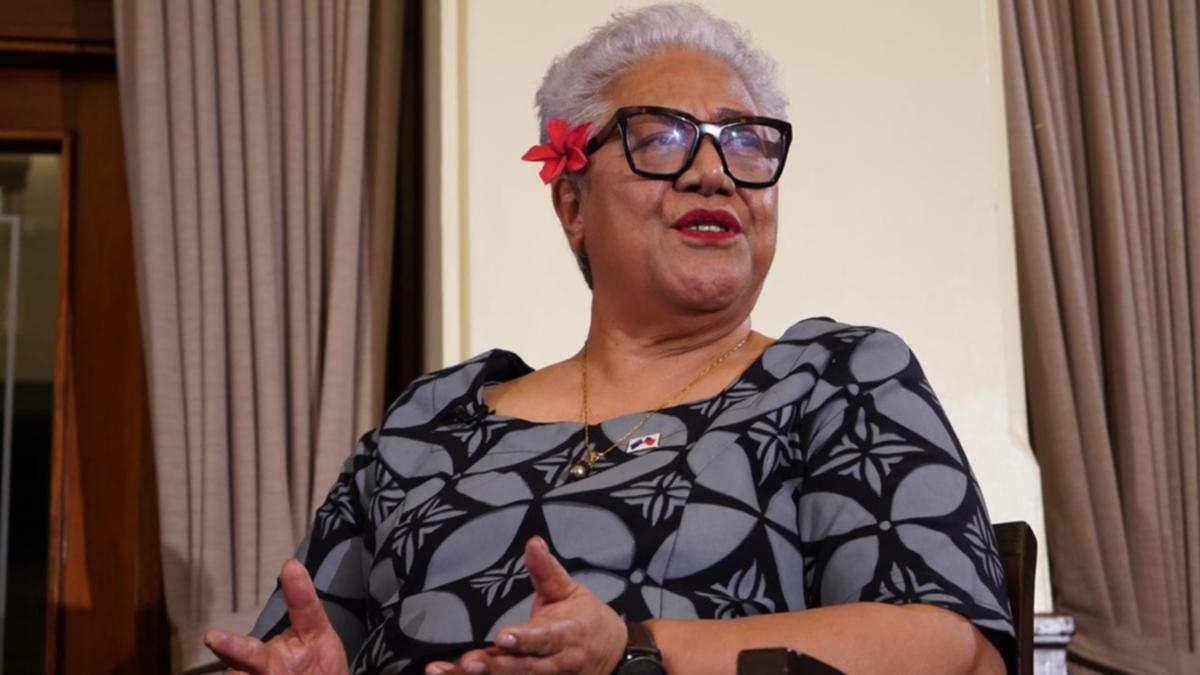Samoa’s prime minister says small Pacific nations need to be listened to and consulted more over regional security issues as bigger players crowd the region.
In her first official visit to Australia, Fiamē Naomi Mata’afa told diplomats and politicians Pacific nations felt like they were being left out of discussions involving their own region.
“I feel I need to be very frank and say that in the Pacific, we feel our partners have fallen short of acknowledging the integrity of Pacific leadership,” she said during her Lowy Institute address on Monday.
“Such acknowledgements can simply be in the form of information sharing and open consultation.”
The prime minister said any deal that would have an impact on the wider region, even if it was bilateral in nature, should be transparent.
The Solomon Islands blindsided the region when it signed a security pact with China, a move that was openly criticised by some other Pacific island nations for a lack of transparency and consultation before it was announced.
Mata’afa said the current strategic climate required a regional and comprehensive strategic partnership.
“The shift in global and regional geopolitics is creating an increasingly complex and crowded region that places the Pacific at the epicentre of contemporary global geopolitics,” she said.
“This trend, coupled with broader challenges, such as climate change and disaster risk, rising inequalities, resource depletion, maritime boundary disputes, and advances in technology will continue to shape the Pacific regional security environment.”
Mata’afa welcomed the transparency and security briefings offered by Australian authorities about the plan to acquire nuclear submarines through the AUKUS pact but would not comment on the decision.
“That is none of my business. We understand that this is how Australia sees its role in the security aspect,” she said.
Samoa is also urging major emitters to phase out fossil fuel subsidies and accelerate actions toward transitioning to lower greenhouse gas emissions and climate-resilient economies.
Mata’afa said climate financing would be crucial to helping nations achieve net zero emissions by 2050.
“However, we cannot achieve that if funding for the root causes of climate change is exponentially greater than investment in appropriate response to climate change,” she said, referring to fossil fuel subsidies.
Mata’afa is in Australia until Saturday as a guest of the Australian government.
Pacific Minister Pat Conroy said Australia would continue to listen to Pacific voices and focus on addressing critical threats such as climate change.
“You’ve worked hard to raise awareness of the existential threat posed by climate change,” he said, addressing Mata’afa.
“I’m glad to have this opportunity during your visit to discuss what more we can do together to drive global action on climate change,” she said.
SOURCE: AAP/PACNEWS














